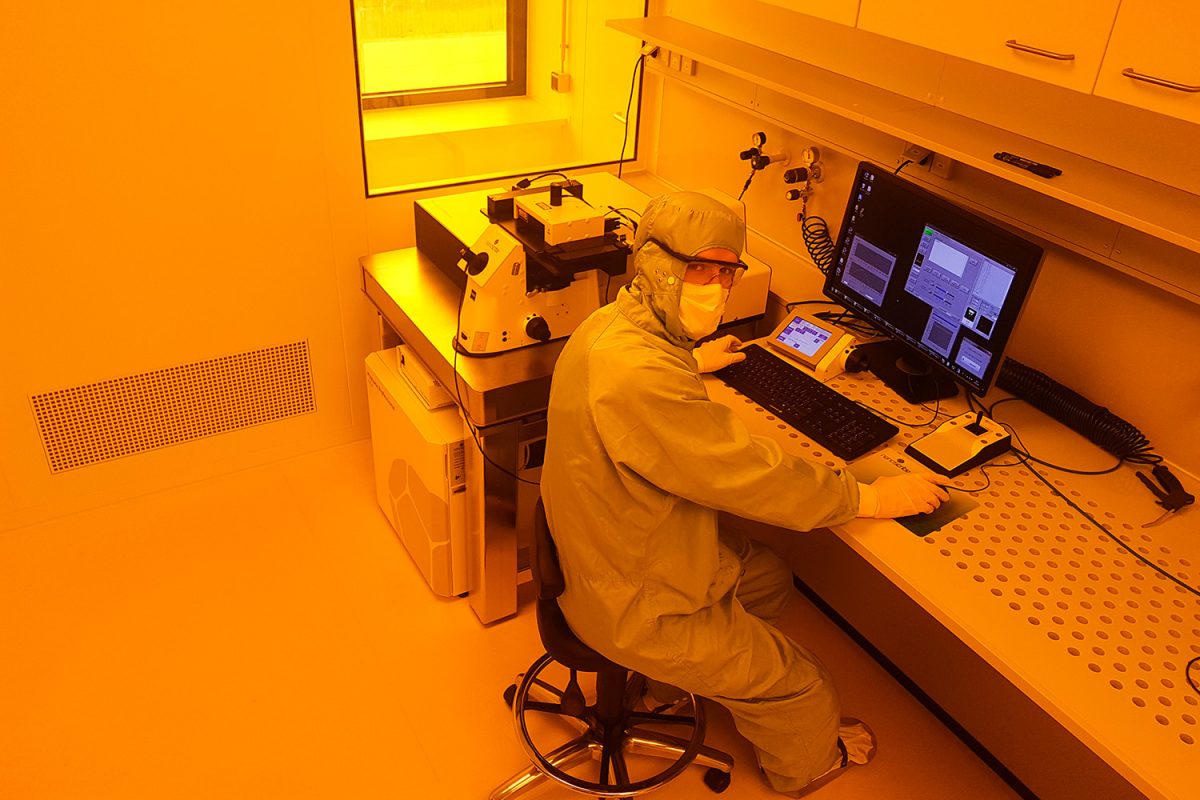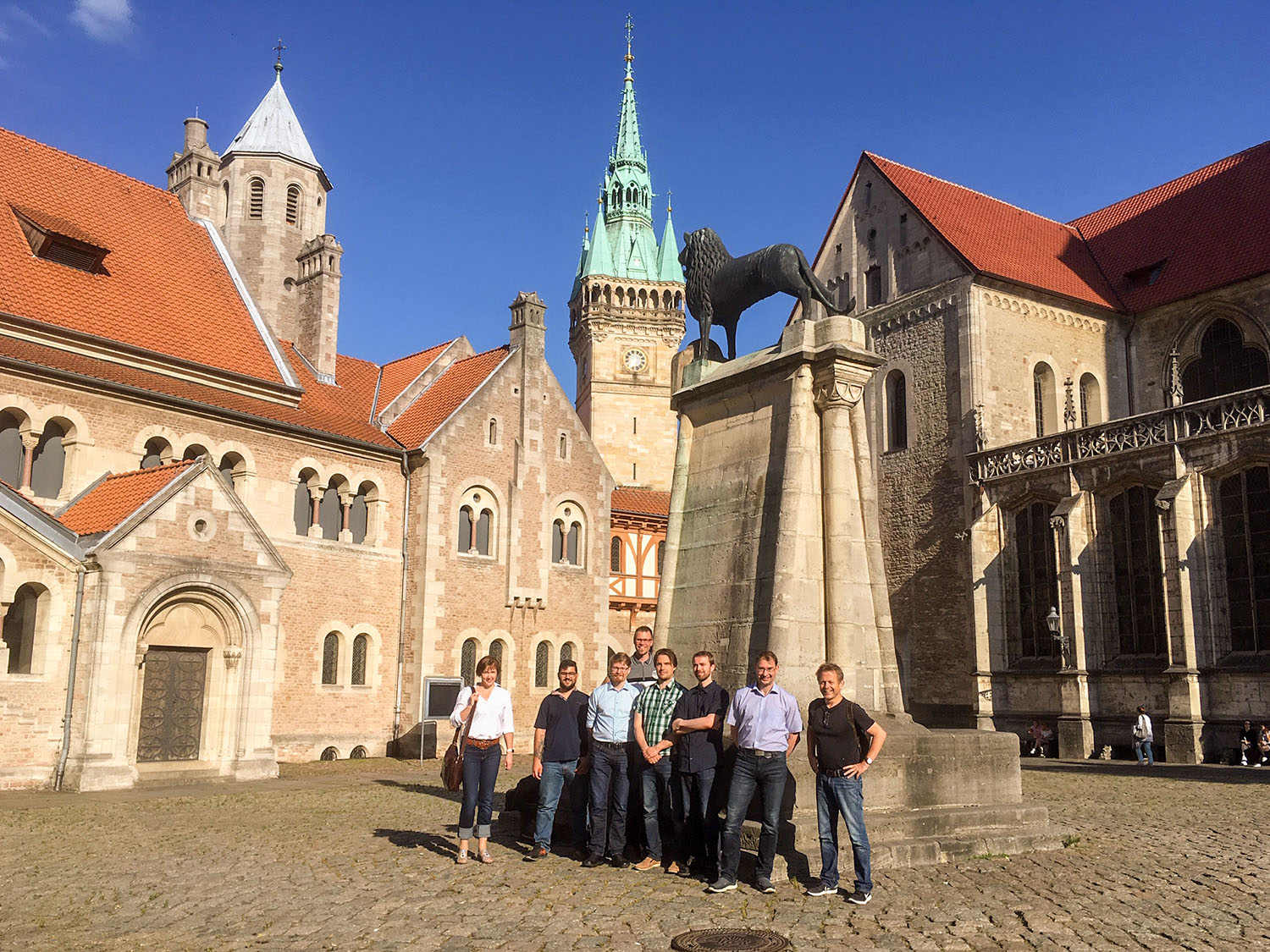A direct hit into the blue The Tampere University is now a strategic partner of TU Braunschweig
Since July 1 2019, it is official: The University of Tampere in Finland is a strategic partner of Technische Universität Braunschweig. A cooperation agreement now regulates the cooperation between the two universities. Two of many examples from research and administration show just how diverse this cooperation is.
Pasi Kallio is head of Micro and Nanosystems Research Group at Tampere University. He has known his colleague Andreas Dietzel, head of the Institute of Microtechnology at Carolo-Wilhelmina, for many years. Both have written joint proposals and meet regularly at conferences. Both share a highly virulent research topic, namely organ chip technology. Together, they want to advance this topic. Since the universities have decided to become strategic partners, their cooperation has received new impetus.
An alternative to animal testing
Researchers from the engineering and life sciences work closely together at the Center of Pharmaceutical Engineering (PVZ) at TU Braunschweig. Their goal is to improve drug research and production. “Up to now, large numbers of animal experiments are required when testing possible new drugs,” says Andreas Dietzel. “But everyone agrees that we need alternatives for ethical reasons.”
“Without real alternatives, there is a danger that the number of animal experiments will even grow as the number of drug candidates to be tested increases,” says his colleague Stephan Reichl from the Institute of Pharmaceutical Technology, with whom he is developing new methods for chip-based preclinical testing at the PVZ.

In the clean room (also yellow room) at the PVZ. The plant for two-photon polymerization (2PP) can be seen. This technology is an essential element in the cooperation with Tampere. It allows 3D printing of micro- and nanostructures for organ-on-chip systems. Marvin Schwarz, PhD student at the institute, is working on the 2PP system. Picture credits: Thomas Lorenz
Drug tests with artificial organs
Organ on chip technology involves working with cell cultures that can also originate from humans. They are cultivated on microchips. Tiny sensors on these chips record the exchange processes in and between these cells. Scientists can already test how active substances are absorbed in the cells and whether and how they work. In the future, complex metabolic functions will also be investigated in this way. But there is still a long way to go. The working groups of Pasi Kallio and
Andreas Dietzel want to walk it together in the future. Their skills complement each other perfectly. Dietzel says: “We have developed the latest micro-fabrication technologies for bio-mimetic environments. Our colleagues in Tampere have special knowledge in the field of electrophysiological investigation of neuronal tissue. During the visit of the working group from Tampere to Braunschweig in June, concrete ideas for a joint EU proposal were developed.
Seed-funding: start-up aid for new ideas
Andreas Hebbelmann from the International House is meanwhile making sure that the exchange gets going and functions smoothly. Both universities support co-operations of this kind with a financial start-up aid, the Seed Funding. Above all, travel costs can be financed from this. This enables researchers to hold joint meetings and small conferences on request – the best conditions for planning and concretizing. The seed funds also benefit partnerships in the fields of mobility, communications technology and the two university libraries. Teacher training is also on its way to deepening cooperation.
The strategic cooperation with the University of Tampere has its roots not in research but in administration. “We wanted our business units to also benefit from our university’s internationalization strategy,” says Dietmar Smyrek, Vice President. “Since we wanted to promote our knowledge of English, we looked specifically for possible European partner universities that do not come from German-speaking countries and use English as a second language, just as we do. It should also be a university comparable in size and profile to ours. The Scandinavian universities were known to us as particularly innovative. At some point it was clear that the University of Tampere met all the requirements. The contact was initiated by Andreas Hebbelmann, who was already familiar with the contact person”.
“It was a shot in the dark,” recalls Smyrek. Accordingly, the first time a delegation from Braunschweig visited, it did not radio immediately. “However, we were surprised at how well the Finns were prepared. For example, they knew the OpenHybrid LabFactory (OHLF) of the TU Braunschweig, and we were able to get a good start with our TU9 member.

Visiting Braunschweig: Prof. Pasi Kallio (2nd from right) with members of his group, next to Prof. Andreas Dietzel (right). Picture credits: IMT/TU Braunschweig
From the lumber industry to the high-tech nation
The personal exchange on concrete topics between the respective colleagues worked all the better from the second day onwards. In Tampere, there has just been a merger process between university, university and technical university. The people of Braunschweig gained insights into the corresponding brand process. “The Finns have also come up with enormously creative solutions, such as how to build lecture halls without chairs, with large staircases, for example, and promote transfer through bookable workplace modules and innovative courses of study. Smyrek says that the change from the timber industry to a high-tech nation has been achieved.
In return, Carolo-Wilhelmina presented the strongly decentralized governance of the research focal points and centers. Many other topics followed. Dietmar Smyrek has now also presented energy cost budgeting to a group of experts across Finland. “If you explain your own processes to people who are working on similar topics in a clearly different system, you gain completely new insights,” he enthuses.
The demand for exchange opportunities is high at both universities, both in the institutes and in administration. “We have more demand than we can finance through the seed fund,” says the Vice President proudly. “In many cases, we will then find additional ways”.
